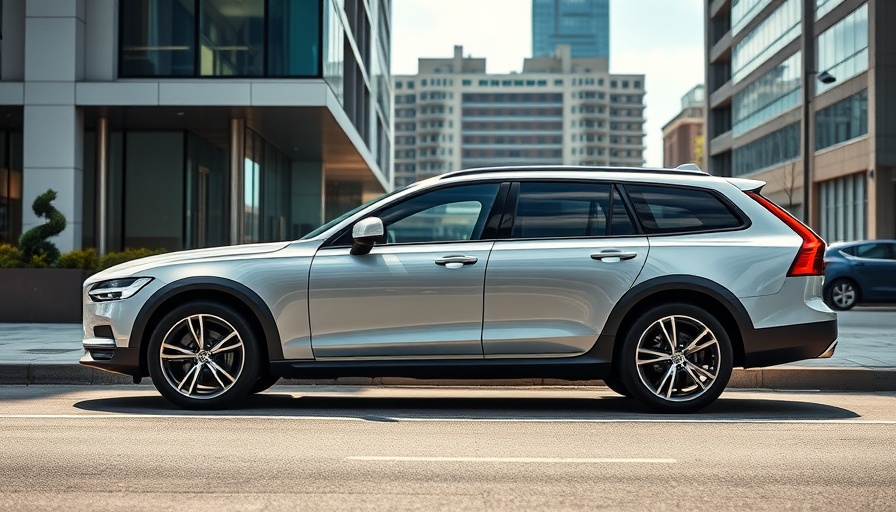
The End of an Era: Volvo V90 Cross Country Bids Farewell
In a world rapidly shifting towards electrification and SUVs, the iconic station wagon is becoming a relic of the past. With the announcement of the Volvo V90 Cross Country's discontinuation, enthusiasts and consumers alike are left pondering the future of this beloved vehicle segment. While it stood out with its rugged charm and versatile functionality, recent market trends have relegated station wagons to niche status.
Understanding the Shift in the Automotive Landscape
The decline of the V90 Cross Country is emblematic of a larger trend we've observed within the automotive industry. As buyers increasingly flock to SUVs and crossovers—vehicles that often boast more space, off-road capability, and perceived safety—the need for classic station wagons has significantly waned. The crossover combination of size, utility, and a commanding driving position has captivated a market looking for practicality without sacrificing style.
Volvo's Strategic Transition: Embracing Electric
Volvo has been at the forefront of automotive innovation, committing to becoming a fully electric car brand by 2030. Their decision to retire the V90 Cross Country aligns with this bold vision, signaling a decisive pivot towards EVs. As the company leans heavily into electric and hybrid models, it’s clear that the focus has shifted from traditional vehicles to those that promise sustainability and forward-thinking technology.
What This Means for Fans of the Station Wagon
For longtime fans of the Volvo V90 Cross Country, this news stings. This vehicle was not just a means of transportation; it represented a lifestyle choice that offered adventure, spaciousness, and versatility. It's a loss that resonates with those who appreciate the melding of luxury and practicality. As Volvo closes this chapter, one has to wonder: what happens next for wagon enthusiasts?
The Crossover Revival: The Future of Family Vehicles
With the decline of traditional station wagons, what can we expect from the future? Enter the crossover. Manufacturers are recognizing the shift in consumer preference and responding with innovative designs that offer features reminiscent of station wagons but in a more modern, chunky package. This trend has already fueled the creation of vehicles like the Subaru Outback and the upcoming electric Ford Explorer—both vying for a similar customer base.
Redefining Utility: How Wagons Can Still Compete
The crux of this shift raises a key question: can wagons make a comeback? Automakers might need to rethink what the wagon can be. By adding features that appeal to the tech-savvy consumer, including advanced safety features and hybrid technology, they could carve out a new niche. There’s room for innovation, and we could see a resurgence of station wagons redefined for modern needs.
Conclusion: Reflecting on a Beloved Vehicle
The Volvo V90 Cross Country's departure could mark not just the end of a vehicle, but an era defined by a rich history of wagons that prioritized comfort and utility. As Volvo and other manufacturers attempt to reshape our understanding of family vehicles, we can only hope for a future where the charm of station wagons is not entirely forgotten.
While the automotive landscape changes, it's important to stay informed about new technologies and vehicles that could replace our favorites. Keep an eye on developments in electric vehicles to understand the emerging trends that will shape our roads. Your next car could very well be part of a sustainable future.
 Add Row
Add Row  Add
Add 




Write A Comment